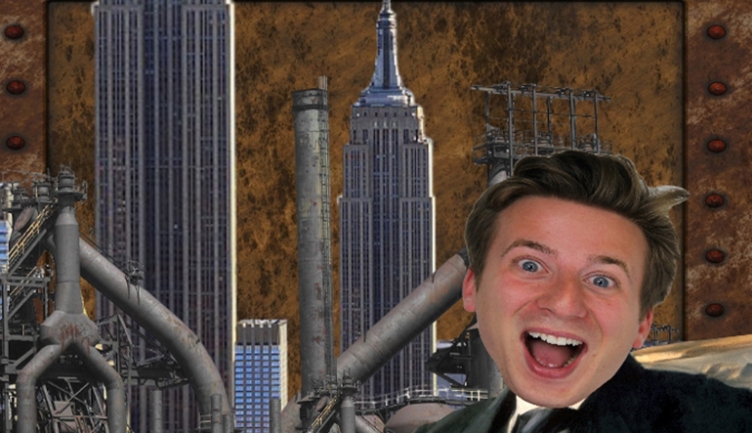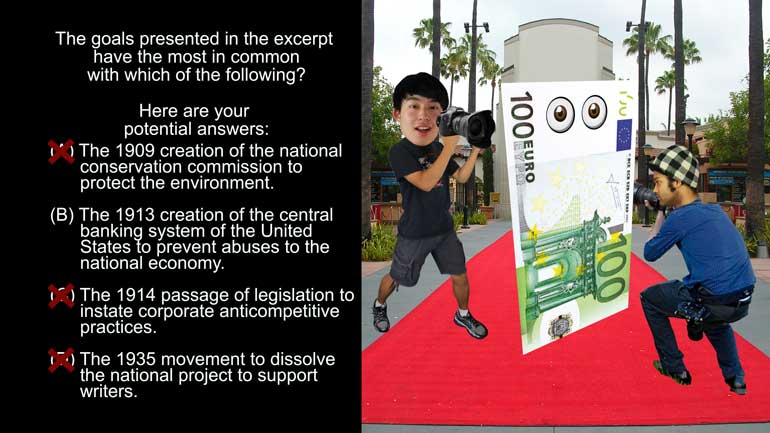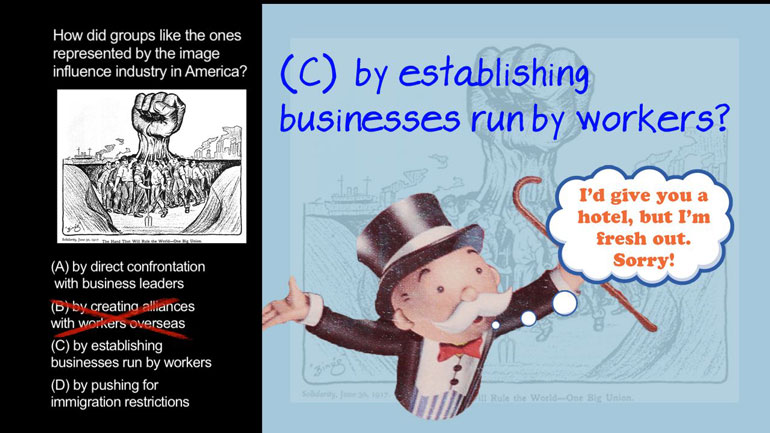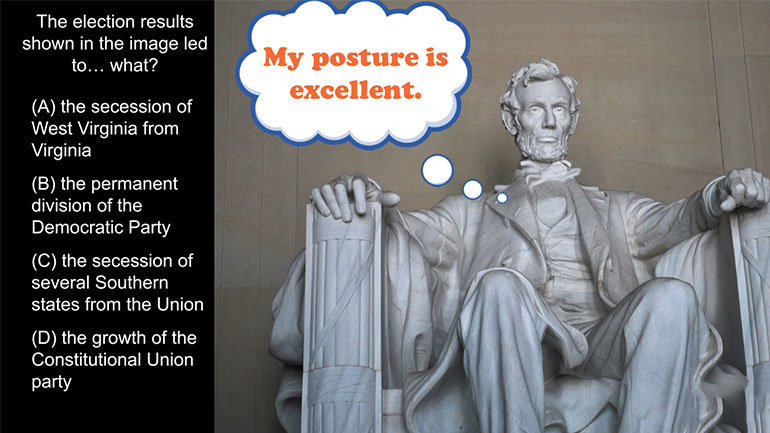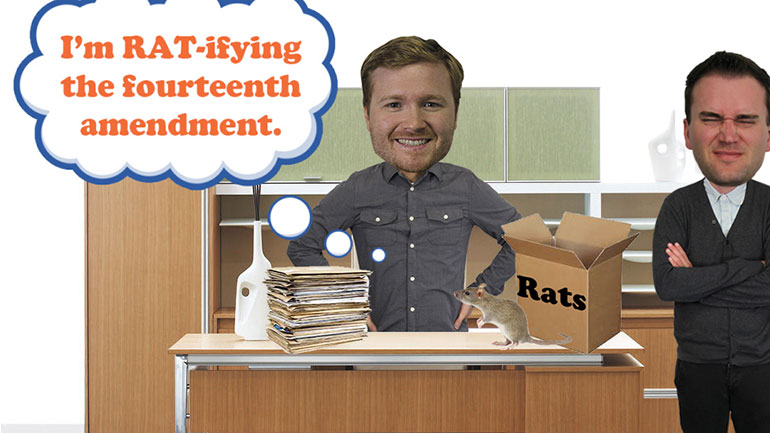ShmoopTube
Where Monty Python meets your 10th grade teacher.
Search Thousands of Shmoop Videos
Period 7: 1890–1945 Videos 19 videos
AP U.S. History 1.1 Period 7: 1890–1945. The Clayton Antitrust Act marked a new period in American labor relations because it...what?
AP U.S. History 1.2 Period 7: 1890-1945. Antitrust laws like the Clayton Act were a direct response to what development in the United States economy?
AP U.S. History 1.3 Period 7: 1890-1945. How did the rise of the corporations affect the social order of the time?
AP U.S. History 1.3 Period 7: 1890-1945 257 Views
Share It!
Description:
AP U.S. History 1.3 Period 7: 1890-1945. How did the rise of the corporations affect the social order of the time?
Transcript
- 00:00
[ musical flourish ]
- 00:03
And here's your Shmoop du jour, brought to you by the social order,
- 00:07
like french fries to share with the table.
- 00:10
All right, first up - the excerpt.
- 00:12
All right, labor of human beings not a commodity...
Full Transcript
- 00:14
Blah blah blah blah blah... [ mumbles ] Clayton Antitrust.
- 00:17
All right, and now the question:
- 00:19
How did the rise of corporations affect the social order of the time?
- 00:23
And here are the potential answers.
- 00:25
[ ding ]
- 00:29
What exactly is this question asking?
- 00:31
Well, we know that the growth of corporations led to
- 00:34
an increase of cheap goods available for consumers.
- 00:36
That's a good thing, right? And with more goods out there,
- 00:39
consumers spent more and more money, which meant that
- 00:41
corporations could keep making the goods.
- 00:44
That's quite the feedback loop. So we need to figure out
- 00:46
which answer best describes what kind of an impact this
- 00:49
business model was having on society as a whole.
- 00:52
Did the rise of corporations affect the social order because
- 00:56
A - it led to greater income equality between
- 00:59
employers and employees?
- 01:01
Well, actually, this time period saw a growth in income inequality.
- 01:05
Corporations were making increasingly more money, but wages
- 01:08
were staying relatively stagnant. So it's not A.
- 01:11
Did the growth of corporations B - decrease the overall demand for labor?
- 01:15
Hmm. With consumer demand soaring, corporations needed
- 01:18
tons of new employees for low-skilled jobs, most of which
- 01:21
were doing things like pushing a button
- 01:23
over and over and over and over again for 12 hours.
- 01:26
That meant Americans wouldn't need a higher education
- 01:28
to obtain this kind of work either, so we can eliminate B and C.
- 01:31
Which means that the rise of corporations affected the social order because D -
- 01:35
it provided women and migrants greater economic freedom.
- 01:39
Because these new jobs didn't require a lot of education and experience,
- 01:42
women and migrants were finally able to join the workforce.
- 01:45
So the correct answer is D. Now, although the jobs were often
- 01:48
dangerous and sometimes exploitive,
- 01:50
women still enjoyed greater economic opportunities than before.
- 01:54
So it looks like you really can put a price on freedom.
- 01:56
Probably about ten cents an hour.
- 02:01
[ bird call ]
Related Videos
AP U.S. History Diagnostic 1. Relationships like the one shown in the image resulted in the development of...what?
AP U.S. History Diagnostic 15. How did groups like the ones represented by the image influence industry in America?
AP U.S. History Diagnostic 10. What led to the splintering of the political parties shown in the image?
AP U.S. History Diagnostic 11. The election results shown in the image led to...what?
AP U.S. History Diagnostic 12. How did the Reconstruction Acts open up political opportunities for former slaves?









